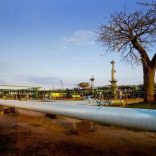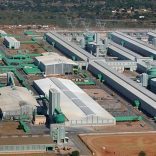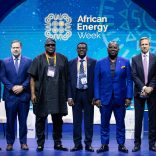Mozambique: Q1 revenue from ruby exports down 30% YoY to $5.1M - central bank
Mozambique: Graphite production falls by 40% in H1

in file CoM
According to government information, Mozambique’s graphite production, an ore used in electric batteries, fell by 40% in the first half of 2024 due to the paralysis and interruption of activities in two mines.
According to data from the budget exception from January to June, to which Lusa had access today, Mozambique produced 34,899 tonnes of graphite in this period, 11% of the target set for this year, which is 329,040 tonnes, which compares with 58,708 tonnes in the first six months of 2023.
The document said that this sharp decrease is “the result of the paralysation of activities “at GK Ancuabe Graphite Mine since 2023, “as well as the interruption of activities “at Twigg Mining and Exploration—the Mozambican subsidiary of Australian mining company Syrah—”due to low demand for this mineral on the international market, combined with price volatility”.
The graphite mine in Balama, northern Mozambique, debuted in the first half of the year exporting graphite to an Indonesian battery manufacturer, which bought 10,000 tonnes, the Australian mining company Syrah announced in April.
According to information released to the markets by Syrah, which owns the mine in Cabo Delgado, this was the “first large volume sale” of natural graphite from Balama to Indonesia, acquired by the company BTR New Energy Materials.
According to Syrah, this is the “first large volume sale of natural graphite to a participant in the battery supply chain outside of China”.
“This bulk sale follows a trial shipment of containers of natural graphite fines from Balama to Indonesia” in the first of 2024, the mining company explained, adding that this export “is another important development” in the sales diversification strategy.
The mining company added that the company BTR New Materials Group is building a $478 million (€429 million) battery factory in Indonesia, “which is due to start production in 2024”, also forecasting new sales from that mine to the company.
Syrah also explained that sales of natural graphite from the Balama mine in the first quarter “were similar” to those in the last quarter of 2023.
“Demand conditions for natural graphite in China were impacted by uncertainty related to the granting of graphite export licences to China,” the mining company acknowledged.
Balama’s production rose to 41,000 tonnes of natural graphite in the first quarter of 2023, compared to 35,000 tonnes in the previous quarter. This was above sales, which rose from 28,000 to 30,000 tonnes.
The Australian company is also building a battery material factory in Vidalia, USA, which will be supplied with Mozambican ore, in this case two tonnes shipped in April last year.
According to the government’s forecast, this year Mozambique expects to produce more than 329,040 tonnes of graphite, the raw material needed to produce batteries for electric vehicles. This would be an increase of more than 180% compared to 2023.
In the document supporting the proposal for the Economic and Social Plan of the State Budget (PESOE) for 2024, the government stated that graphite production “will increase significantly”.
The estimate took into account the plans of the two companies to produce this mineral, even though by the first half of 2023 it was “at a 22% realisation”, due to the “weak demand for this ore on the international market”, which led Twigg Mining and Exploration [a subsidiary of Syrah Resources Limitada], the largest producer, “to temporarily interrupt its mining and processing activities in May and June”.
Mozambique produced 120,000 tonnes of graphite in 2020, a performance that fell to 77,116 tonnes the following year. The estimates for 2022 and 2023 were 182,024 and 117,416 tonnes, respectively.












Leave a Reply
Be the First to Comment!
You must be logged in to post a comment.
You must be logged in to post a comment.